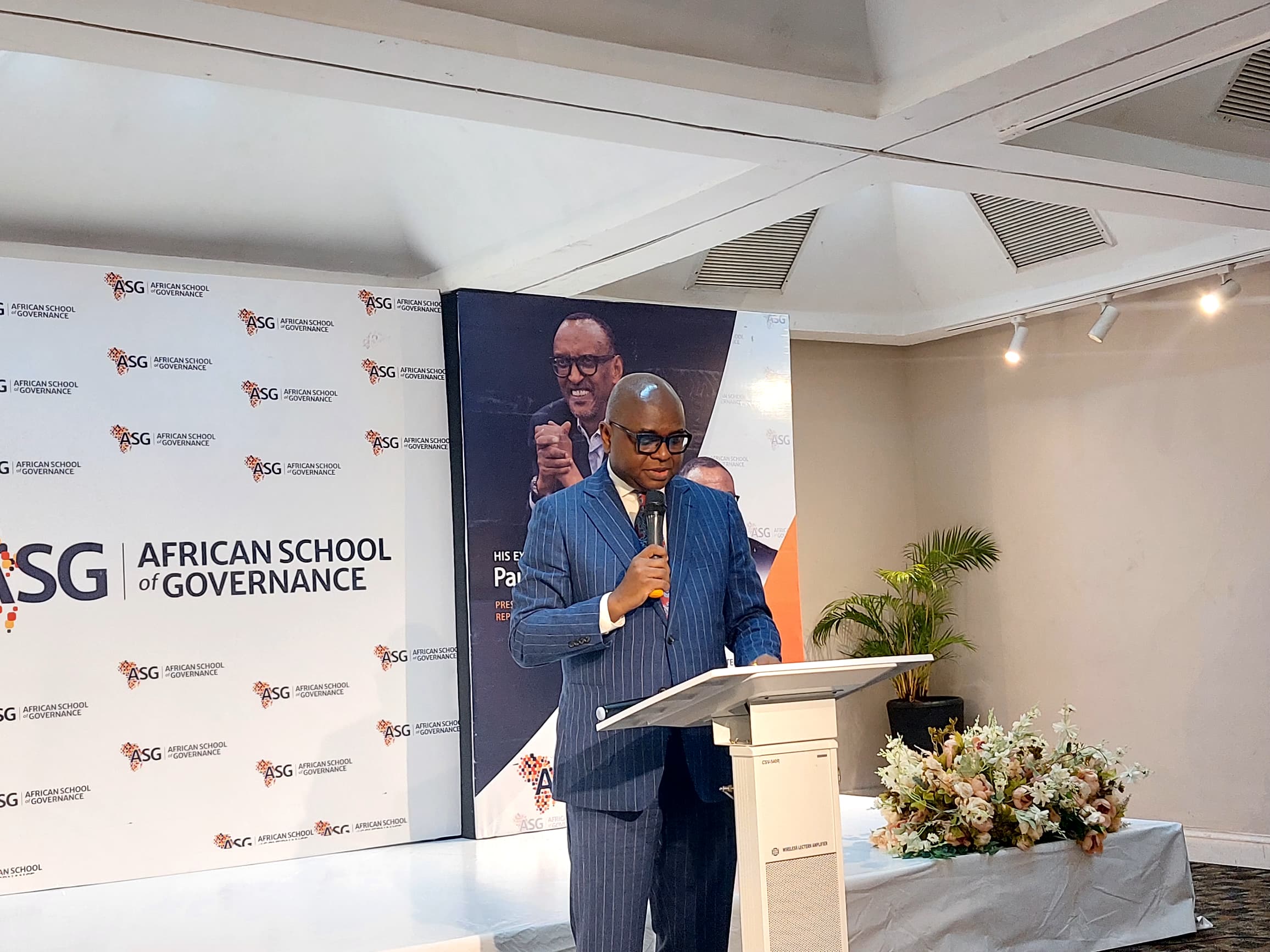Education
African School of Governance to Groom New Generation of African Leaders – Moghalu
Published
12 months agoon

The inaugural President of African School of Governance (ASG), Professor Kingsley Moghalu, has said the school is on a mission to raise the next generation of African leaders with the right knowledge, skills and transformative mindsets.
Moghalu, a former deputy governor of the Central Bank of Nigeria (CBN), made the pledge during an information session of the ASG in Lagos on Tuesday.
Read Also:
He said that the newly-established leadership school, headquartered in Kigali, Rwanda, underscores the critical role of education in shaping both leadership and followership across the continent.
Professor Moghalu noted that poor governance in Africa “stems from a lack of structured leadership education,” thus, highlighting ASG’s commitment to addressing this gap through leadership training focused on corporate governance, gender equity, and public-private collaboration.
“The biggest challenge facing governance in Africa is not just leadership but also followership. Educating both leaders and the governed is essential for creating accountable and effective systems,” he stated.
According to him, ASG seeks to nurture a new generation of leaders “by offering programmes that emphasise policy innovation, ethical governance, and economic development.”
He stressed the importance of training future African leaders to think differently, acquire new skills, and lead in a transformative way.
ASG was founded by Paul Kagame, President of Rwanda, and Hailemariam Desalegn, former Prime Minister of Ethiopia, while Professor Moghalu was in October, 2024, appointed the institution’s inaugural president.

African identity in governance
Professor Moghalu stressed the need to embrace and promote African culture, noting that development must be rooted in indigenous identity rather than external influences.
“We have to learn governance in the context of Africa. We are Africans, and we must now think in that way, not copy and paste from other civilisations or other cultures. We have our own cultures,” he said.
He further emphasised the importance of acknowledging traditional institutions in governance, adding that the exclusion of traditional systems from governance has created tension, which could be resolved by formally integrating them in advisory roles.
“Traditional institutions and traditional leaders must be part of governance in our societies. They are a reality, but we continue to ignore them,” he noted.
Goals of ASG
Speaking on ASG’s short- and long-term goals, the ASG president outlined the immediate priority as successfully recruiting for the Master of Public Administration (MPA) and Executive Master of Public Administration (EMPA) programmes, both set to launch in June.
In the medium term, he noted that ASG aims to have its first cohort graduate within two years and assess its impact within five years.
Over the long term, the institution plans to evaluate the influence of its alumni on governance in Africa and globally over a 10-year period.
He acknowledged the challenges of establishing a unique institution like ASG, identifying skepticism about governance education as one of such huddles to cross at the early stage of the initiative.
He emphasised the need for inspirational teachers and a strong philosophical foundation rooted in Africa’s history and cultural evolution.
Combating corruption through education
Another key issue raised at the forum was corruption in Africa and the urgent need to integrate ethics and accountability into leadership training.
Attendees, including representatives from African Leadership University (ALU), Harvard Kennedy School, and Lagos Business School, among others, suggested that combating corruption goes beyond enforcement but that it requires a shift in public perception and mindset.
In response, Professor Moghalu said ASG plans to introduce courses that analyse the economic costs of corruption, teaching future leaders how to navigate, dismantle corrupt systems and ensure that corrupt acts attract severe consequence, citing China as an example of countries with success stories in combating grafts.
Application process
In her remarks, Ngozichukwu Njemanze, Director and Senior Policy Adviser, as well as Chief of Staff to the President of ASG, said ASG aims to equip professionals in both the public and private sectors with interdisciplinary skills tailored to African challenges.
Ms Njemanze announced that the application portal opened on 1 February with a rolling admission process.
Applicants are required to submit documents, including a bachelor’s degree, proof of English proficiency, and letters of recommendation.
She added that scholarships and financial aids are available, encouraging early applications, with final decisions expected by 31 July.
She noted that the MPA programme’s first cohort will commence in September 2025, while the Executive Fellowship in Public Administration (EFPA) programme is set to launch in 2026.
“The admissions process is merit-based and need-blind. Financial aid is available, but applicants must first gain admission before applying for scholarships,” she said.
Meanwhile, President Moghalu reiterated that ASG’s commitment to diversity is reflected in its admissions policy, which welcomes non-Africans with professional or research interactions on the continent.
He added that ASG is currently recruiting highly competent African faculty members with plan to reveal their identities in April.
Collective efforts
The ASG President however called for collective efforts in promoting governance education, even as he urged stakeholders to support ASG’s vision of producing competent and ethical leaders for Africa’s future.
“With the right education and leadership training, Africa can revolutionise governance, making accountability, transparency, and economic growth the norm rather than the exception,” he concluded.
Share this:
- Click to share on X (Opens in new window) X
- Click to share on Facebook (Opens in new window) Facebook
- Click to share on WhatsApp (Opens in new window) WhatsApp
- Click to share on Pocket (Opens in new window) Pocket
- Click to share on Telegram (Opens in new window) Telegram
- Click to email a link to a friend (Opens in new window) Email
- Click to share on LinkedIn (Opens in new window) LinkedIn




